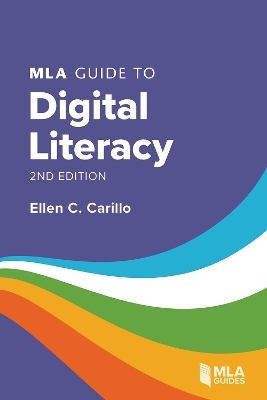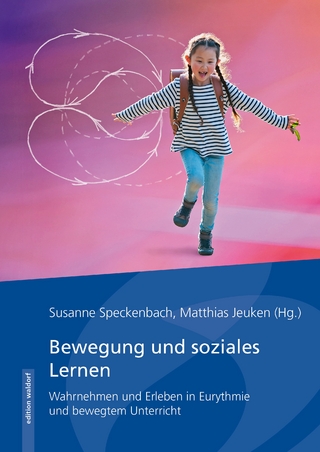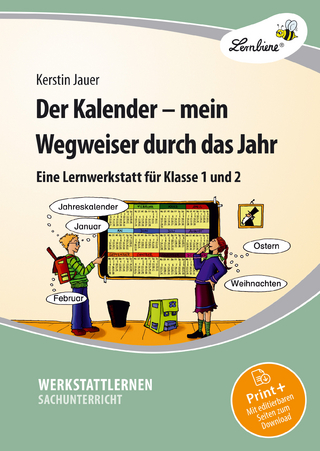
MLA Guide to Digital Literacy
Seiten
2022
|
2nd Revised edition
Modern Language Association of America (Verlag)
978-1-60329-605-2 (ISBN)
Modern Language Association of America (Verlag)
978-1-60329-605-2 (ISBN)
Helps students understand why digital literacy is a crucial skill for their education, future careers, and participation in democracy. Offering practical strategies for assessing information online, this guide provides students with the tools to locate reliable sources and websites among the clickbait and viral videos that pervade the web.
The second edition of this best-selling classroom guide helps students understand why digital literacy is a crucial skill for their education, future careers, and participation in democracy. Offering practical strategies for assessing information online, this guide provides students with the tools to locate reliable sources and websites among the clickbait and viral videos that pervade the web. The guide's hands-on activities, germane readings, and lesson plans give students strategies for reading and analyzing data visualizations; finding and evaluating credible sources; learning how to spot fake news; fact-checking; crafting a research question; effectively conducting searches on Google and on library catalogs and databases; finding peer-reviewed publications; evaluating primary sources; and understanding disinformation and misinformation, filter bubbles, propaganda, and satire in a variety of sources—including websites, social media posts, infographics, videos, and more (on platforms like Facebook, Twitter, Instagram, TikTok, and YouTube).
New to the second edition:
• attention to the ethical dimensions of digital technology, including privacy issues and bias in search algorithms—with an accompanying lesson plan
• an emphasis on how digital literacy can help stem racism, sexism, ableism, and the perpetuation of harmful stereotypes
• instruction on inclusive research and citation practices to avoid perpetuating systemic bias
• a new chapter, "Composing in Digital Spaces," that offers instruction in multimodal composition and foregrounds accessibility
• a new and up-to-date reading, "The Real History of Fake News"
• a section on avoiding plagiarism
• updated references and examples
• resource lists of digital tools, platforms, and software that can support the practices described in the guide
The second edition of this best-selling classroom guide helps students understand why digital literacy is a crucial skill for their education, future careers, and participation in democracy. Offering practical strategies for assessing information online, this guide provides students with the tools to locate reliable sources and websites among the clickbait and viral videos that pervade the web. The guide's hands-on activities, germane readings, and lesson plans give students strategies for reading and analyzing data visualizations; finding and evaluating credible sources; learning how to spot fake news; fact-checking; crafting a research question; effectively conducting searches on Google and on library catalogs and databases; finding peer-reviewed publications; evaluating primary sources; and understanding disinformation and misinformation, filter bubbles, propaganda, and satire in a variety of sources—including websites, social media posts, infographics, videos, and more (on platforms like Facebook, Twitter, Instagram, TikTok, and YouTube).
New to the second edition:
• attention to the ethical dimensions of digital technology, including privacy issues and bias in search algorithms—with an accompanying lesson plan
• an emphasis on how digital literacy can help stem racism, sexism, ableism, and the perpetuation of harmful stereotypes
• instruction on inclusive research and citation practices to avoid perpetuating systemic bias
• a new chapter, "Composing in Digital Spaces," that offers instruction in multimodal composition and foregrounds accessibility
• a new and up-to-date reading, "The Real History of Fake News"
• a section on avoiding plagiarism
• updated references and examples
• resource lists of digital tools, platforms, and software that can support the practices described in the guide
Ellen C. Carillo is professor of English and writing coordinator at the University of Connecticut. She is the author of several books, including The Hidden Inequities in Labor-Based Contract Grading (2021), Teaching Readers in Post-truth America (2018) and Securing a Place for Reading in Composition: The Importance of Teaching for Transfer (2015).
| Erscheinungsdatum | 16.07.2022 |
|---|---|
| Verlagsort | New York |
| Sprache | englisch |
| Maße | 154 x 227 mm |
| Gewicht | 117 g |
| Themenwelt | Schulbuch / Wörterbuch ► Lexikon / Chroniken |
| Schulbuch / Wörterbuch ► Unterrichtsvorbereitung ► Unterrichts-Handreichungen | |
| Sozialwissenschaften ► Kommunikation / Medien ► Buchhandel / Bibliothekswesen | |
| Sozialwissenschaften ► Kommunikation / Medien ► Medienwissenschaft | |
| Sozialwissenschaften ► Pädagogik ► Allgemeines / Lexika | |
| ISBN-10 | 1-60329-605-0 / 1603296050 |
| ISBN-13 | 978-1-60329-605-2 / 9781603296052 |
| Zustand | Neuware |
| Informationen gemäß Produktsicherheitsverordnung (GPSR) | |
| Haben Sie eine Frage zum Produkt? |
Mehr entdecken
aus dem Bereich
aus dem Bereich
elektronische Lehrmittel in den modernen Unterricht integrieren
Buch (2024)
Hanser, Carl (Verlag)
49,99 €
Wahrnehmen und Erleben in Eurythmie und bewegtem Unterricht
Buch | Softcover (2024)
Pädagogische Forschungsstelle beim Bund der Freien … (Verlag)
17,00 €
eine Lernwerkstatt für Klasse 1 und 2
Buch (2023)
Lernbiene (Verlag)
25,90 €


